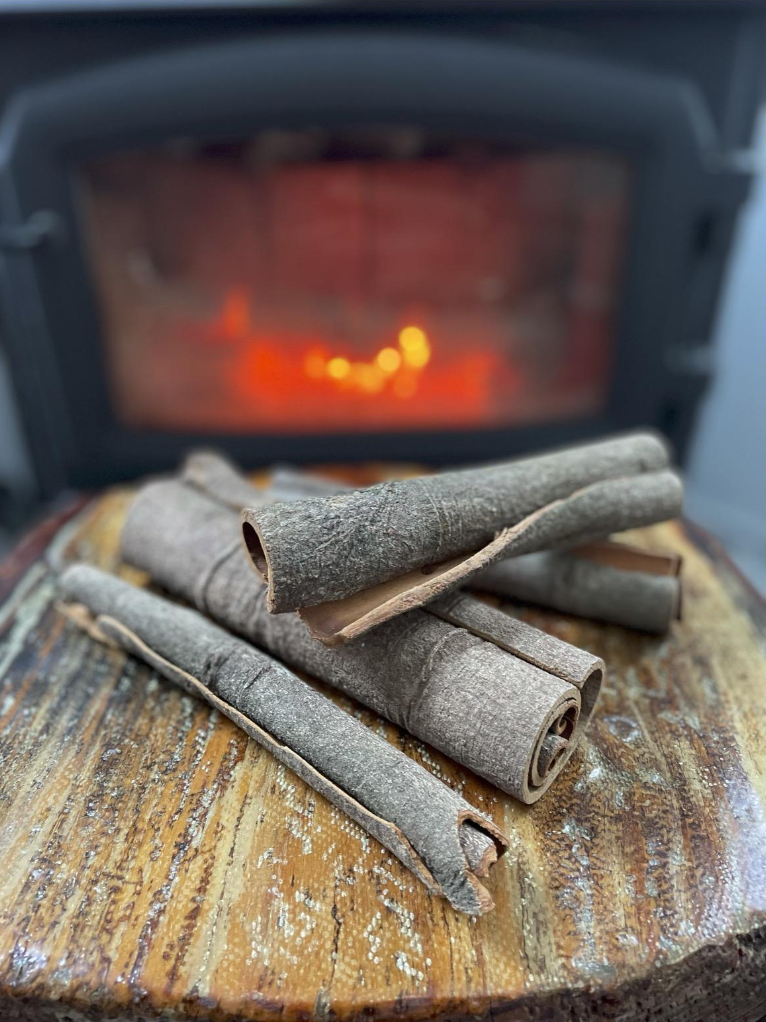Article by Bob Malecki R.TCM.P
It is the season of moving inward, and downward. Of darkness, and stillness. Of cold and … warmth? Yes, warmth!
In the depths of winter, a small flame trudges on inside you and we must nurture and preserve it. It is the yang within yin. Without feeding our inner fire, the cold of the winter can leave us chilled and shivering, cold and lethargic, weak and fearful.
We must eat warm cooked meals and bundle up inside and out. What do we do if that cold has already moved inside, and we are chilled to the bones? Then we will need stronger medicine than food, we will need herbal medicine. There are many herbs that are hot and warm, so how do we choose? With Chinese herbal medicine great care is taken when prescribing medicinals, each patient is unique and presents with very nuanced symptoms. One herb may be irritating for one patient, and a perfect match for another.
I want to introduce a herb that is very important this time of the year.
Ròu Guì – Cinnamomum cassia or “Cinnamon bark”
The Chinese Herbal Medicine Materia Medica written by Bensky et al says this herb is acrid, sweet and hot. It says that the herb enters the Heart, Kidney, Liver and Spleen channels of the body. Key functions include warming and tonifying yang, disperses cold and promotes the movement of blood.
Acrid also means pungent, or spicy. This combined with the sweet flavour has the ability to nourish the yang of the body. Acrid moves outward like branches of bamboo growing up towards the sun. The sweet flavour has the ability to build and nourish.
Yang is the inner fire inside of us, it is the metabolic processes happening on a cellular level, it is what keeps things moving and warm. Yin is the material, the substance that exists as matter, as fluid, as structure. Yin is also cold, and too much yin can create cold in the body. This can manifest as loose stools, poor appetite, chills, cold hands and feet, sharp pain, arthritis, and more. Ròu Guì has the ability to combat these symptoms with yang and when combined with other herbs. Cold contracts, it causes things to become still. When the blood slows in the body it can create pain in the muscles, joints and organs – especially the heart. Ròu Guì warms and moves the blood, to treat these pains and bring fresh nourishment to the tissues, and channels. It has an affinity for the Heart, Kidney, Liver and Spleen channels – but must be combined with other herbs to have an outstanding effect on any one of them. Chinese herbal medicine relies heavily on herbal pairing and formula building. Rarely ever do we use one herb at a time.
If you are interested in ròu guì or Chinese herbal medicine, you can book a free consultation with me and we can find out if herbal medicine is right for you!

